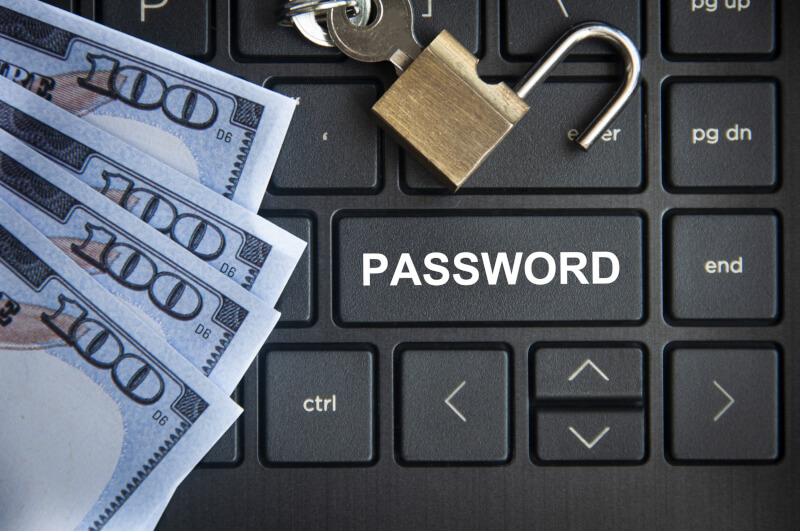As the rest of the world moves online, it has become increasingly common for younger people in South Africa to make financial transactions using their mobile devices. You may talk to your pals, check your bank account and browse social media all from the ease of your mobile device among the country’s young people anywhere, including the busy city of Durban. However, the rise of online banking has left younger generations more vulnerable to a problem that has persisted for decades: banking fraud.
It’s crucial to understand the landscape
Data from SABRIC shows that across South Africa, there were 77,000 reported cases of digital banking fraud in 2022 alone, signifying a rise of 15% from the previous year. Understanding this reality highlights the pressing need to follow sound online security practices. Given these risks, the youth of South Africa must memorise a few simple recommendations to help them avoid becoming victims of unscrupulous con artists. To begin with, never under any circumstances would your bank ask you to.
There is a robust set of processes in place at the bank to ensure the security of your account. Be wary of requests that sound too good to be true. No legitimate financial institution will ever request that you take cash and hand it over for “safekeeping,” disclose your personal identification number (PIN), online banking password(s), or any OTP/SMS codes, or move funds to another account(s) for “safekeeping.” Also, double-check that the number you’ve entered into your phone is the same as the bank’s official number. Cloning phone numbers is a tactic used by criminals.
The executive at a Johannesburg bank, Sibongile Nkosi, who we were able to speak with, warned us as follows: “The most important thing is to keep in mind that your bank would never ask for it if the request compromises the safety of your account or any of your personal information in any way.”
As digital banking continues to thrive, the risk of fraud exponentially increases. In South Africa, where smartphone usage among young people stands at 72%, according to a GSMA study, this issue is particularly pertinent. Fresh data emphasises the urgency of this matter and how integral the previously provided guidelines are in the battle against banking fraud.
One glaring issue is that 1 in 3 young South Africans, according to a survey by Nedbank, have at some point mistakenly shared their banking credentials. Remembering that banks will never ask for sensitive information like OTPs or passwords can substantially decrease the vulnerability to fraud.
Always double-check on your own
If you receive a call from a number claiming to be your bank, you should check with the actual bank to make sure it is legitimate. To avoid being kept on hold by con artists, dial the bank’s official number from a device other than the one you used to make the call.
As per data from ABSA, approximately 40% of all reported phishing attempts involved fraudsters pretending to be banking representatives. This alarming figure underscores Rule 2’s importance – the need to verify independently the identity of anyone claiming to represent your bank.
Keep your electronics safe
Any of your high-tech gadgets, such as a computer, tablet, or smartphone, can access your private data. Never let anyone into them unless you’ve given them explicit permission to do so. By doing so, you lessen the likelihood that malicious software may be installed on your computer and used to steal your personal and financial data. A recent report by Norton Cyber Safety Insights shows a staggering 56% increase in malware attacks on South African smartphones, reaffirming the importance of maintaining tight control over who has access to your devices.
Diversify the passwords you use

It’s easy to make the mistake of reusing the same password across all of your online accounts. As a result, you may become more vulnerable to injury. To develop and keep track of complex passwords, utilise a trusted password manager.
The potential power of strong, unique passwords is underlined by an alarming statistic: A Microsoft report reveals that weak or reused passwords are responsible for an astonishing 73% of cyber breaches worldwide.
Rely on your good judgement
It’s probably true that something is wrong if it doesn’t feel right. If you need to contact your bank immediately, do so by dialling the number listed on the bank’s website or your most recent statement. Con artists typically prey on the haste and terror of their victims. Dr. Thabo Mofokeng, a recognised authority in the field of cybersecurity, recommends that you “so take a moment, breathe, and trust your instincts.”
Capitec Bank recently found that 60% of fraudulent activities on accounts could have been prevented if customers had acted on their suspicions and contacted the bank. This amplifies the importance of Rule 5: if you suspect something, contact your bank immediately.
Due to the ever-changing nature of digital technology, financial fraud is also constantly evolving, necessitating a dynamic approach to prevention. Knowing what to do and doing it before anything bad happens are our most potent weapons. Younger readers, keep in mind that the more money you have saved, the more valuable your safety is in the fast-paced world of digital banking. Keep your guard up and your feet on the ground.
About The Author:
Thabo Matlala is a fintech journalist with Africa Nova. A finance graduate, Thabo has an eye for exciting trends and startups disrupting the traditional South African landscape.




